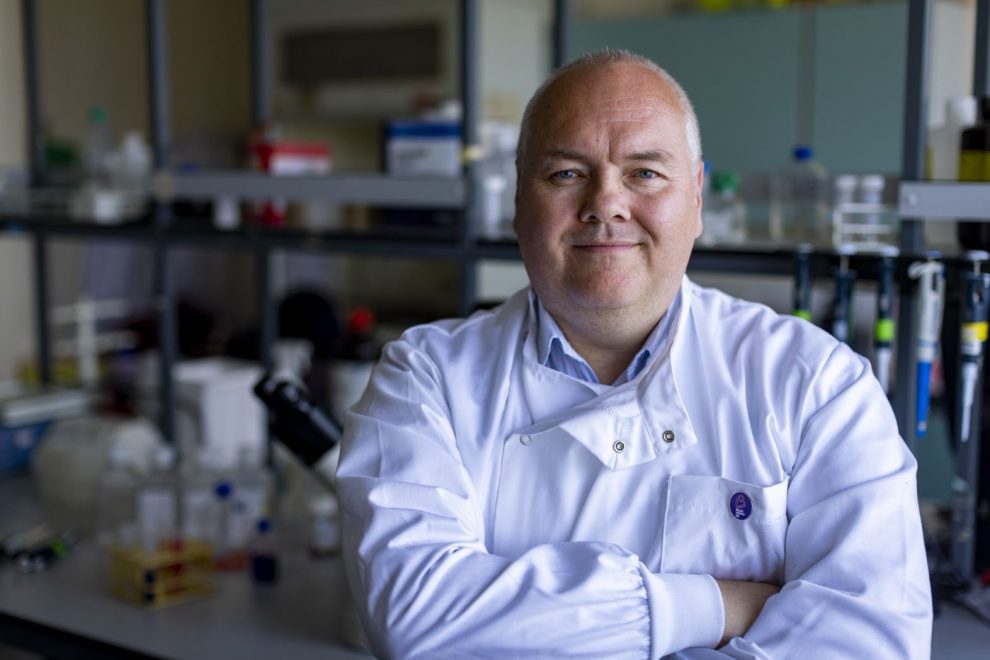CARDIFF UNIVERSITY researchers funded by Health and Care Research Wales are hoping to be the first to understand the role of a key protein found in one of the most common types of leukaemia – Acute Myeloid Leukaemia (AML). This could potentially pave the way for life-saving blood cancer treatments in the future. The research team observed that the protein, called NFIC, appeared to be significantly higher in blood cancer cells of patients with AML than in non-cancerous cells, and that NFIC is required for those cells to survive.
Blood cancer is the fifth-most common cancer in the UK, with several different types, including leukaemia, lymphoma and myeloma, and each type has its own variations and mutations. AML has over 100 different types, each caused by a different mutation, which has historically made the disease notoriously difficult to treat.
Professor Alex Tonks, the lead researcher from the Division of Cancer and Genetics at Cardiff University, said: “No-one currently knows what this protein does in blood cancer cells, so we would be the first to understand NFIC’s role in how AML develops. Once we have that understanding, we can create treatments to tackle it.”
Chemotherapy, while an important part of treating AML, can be gruelling for patients to go through, and Professor Tonks hopes that a more targeted and effective treatment can be developed. This targeted treatment is known as precision therapy and has already been used to great effect in another type of blood cancer, Chronic Myelocytic Leukaemia (CML). The funding has enabled Professor Tonks to support a PhD student, Owen Hughes, and in doing so help to develop the next generation of blood cancer researchers.
Owen Hughes said: “I was drawn to this particular study into the impact of NFIC in AML as I was excited that it could lead to the development of new targeted therapies, improving outcomes for patients. I am extremely grateful to Health and Care Research Wales for funding the project. Without their support, I would not have been able to embark on this journey and progress through the early stages of a career in research.”
Professor Tonks said: “I’ve been involved in blood cancer research for more than 20 years and am passionate about supporting the next generation of scientists that will take this research forward and generate those treatments for those patients.”
Health and Care Research Wales is the delivery arm and external brand of the Welsh Government’s Health and Social Services Research & Development Division. Health and Care Research Wales works in partnership with the NHS, universities, local government, other research funders, patients and the public to fund, support and increase research that can transform lives, promotes economic growth and advance science.

















